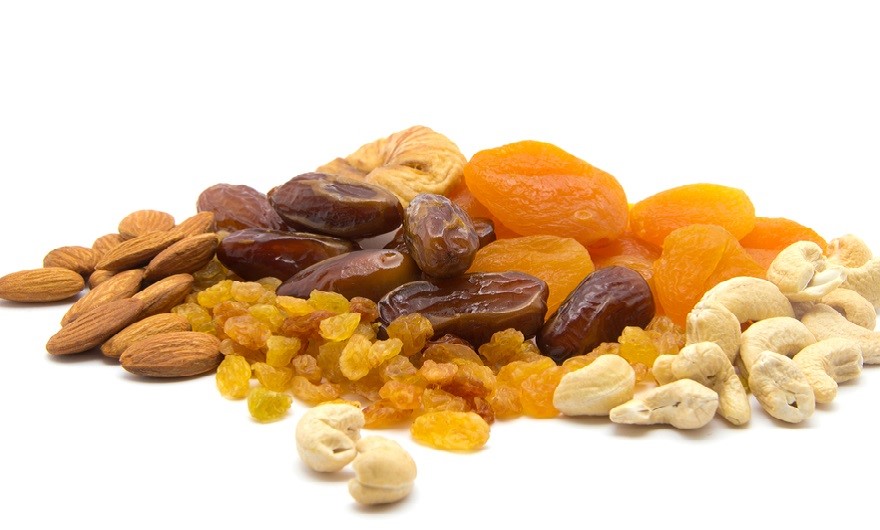
Tu Bishvat is the New Year of Trees, a time of joy and celebration of nature. A distinct feature of the holiday: fresh and dried fruit, symbolizing the abundance of the earth.
We recommend choosing fresh fruit from Israel, nuts and almonds.
For people who love dried fruit, we recommend choosing fruits that are not coated with sugar.
Dried fruits are an excellent source of vitamins, minerals and dietary fiber. They are particularly rich in iron, magnesium, potassium and calcium. Dried fruit (without sugar) is a high-calorie food, making it the perfect energy food when exercising.
Some dried fruit, however, are sold with food coloring and are unhealthy, such as papaya, deeply orange apricot, kiwi and pineapple. In contrast, food coloring is not added to cranberries, ginger and brown apricots do not contain food coloring.
The question is then asked whether sugar is added to fruit and how much sugar? Apricots for the most part do not have sugar added. Ginger occasionally has sugar added. Cranberries, in contrast, are full of sugar. Dried kiwi is largely full of sugar, food coloring and preservatives.
Ask at the shop for dried fruit with no added sugar.
There are many and varied types of dried fruit, each of which has their own health benefits.
Dates
Dates are an excellent source of iron, making it a good choice for people suffering from anemia. Also rich in dietary fiber, dates help the digestive process.
Prunes
Prunes, an excellent source of dietary fiber, help the digestive process and reduce constipation. Prunes are also rich in Vitamin A, helping improve vision.
Apricots
An excellent source of iron, potassium and magnesium, apricots are also rich in Vitamin A, which helps prevent anemia and helps strengthen vision. Dried brown apricots should be purchased as they are healthier than the orange apricots.
Raisins
Raisins are an excellent source of dietary fiber, helping the digestive processes and reducing constipation. Raisins are also a rich source of Vitamin B6, which helps brain function.
Cranberries
Sugar free cranberries are an excellent source of anthocyanins, a compound with strong antioxidant properties. An excellent source of Vitamin C, which strengthens the immune system, cranberries help prevent cardiovascular disease, diabetes, slow down the aging process and maintain brain function.
Figs
Figs are an excellent source of dietary fiber, helping digestive processes and reducing constipation. Figs are also a rich source of Vitamin K, which helps blood clotting.
Tips on selecting and using dried fruit
When choosing dried fruit, pick fruit that looks fresh, solid and not overly dry.
Dried fruit can be a healthy food product, but it is important to consume them in moderation. Dried fruits are a high calorie food, possibly leading to weight gain when eaten in large quantities.
Dried fruit may be added to salad, yogurt, and used to prepare healthy desserts.
In conclusion, dried fruits are an excellent source of vitamins, minerals and dietary fiber. Healthy and flavorful, they can be incorporated in a daily diet.
How can dried fruit be made at home?
You can dehydrate any extra fruit that you have (it is important to make sure they are fresh). You need two clean, mesh drying racks.
On one of the surfaces, place the thoroughly washed fruit and remove the seeds. Place the second rack on top and place it in a sunny area. Alternatively, place in an oven at 60°C or lower. Dry each fruit separably (since every fruit dries at a different pace).
The fruit should be placed on a baking tray lined with parchment paper, at a distance from each other. Sprinkle fresh lemon juice on them – which will cause the fruits to maintain their color and prevent browning.
Baking / dehydration time varies depending on the fruit and may take 3 to 8 hours. Dehydration time depends on the quantity of water in the fruit as well as the thickness of the fruit slices. Slicing or halving the fruit will speed up the dehydration process.
It is important to store in a refrigerator, since the dried fruits contain no preservatives.
Happy Tu Bishvat!



